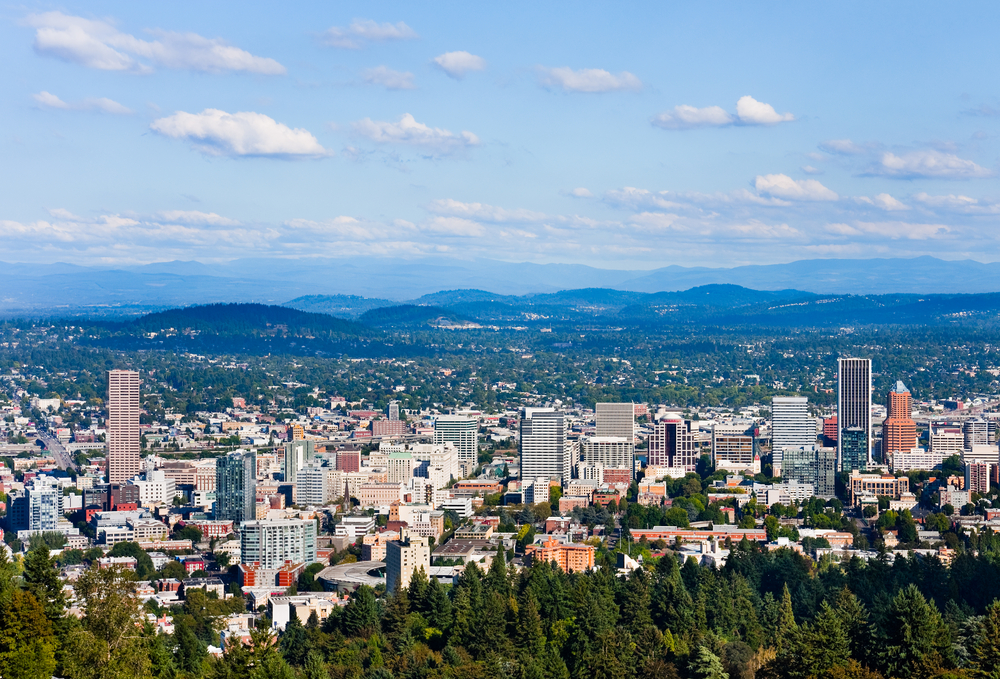Portland Earthquake Preparedness Guide
How to Get Through a Major Portland-Area Earthquake
Portland hasn’t seen a significant earthquake since the Spring Break Quake of 1993, which registered a relatively mild 5.6 on the Richter scale and did little damage North of Canby. Since then, the area’s relative lack of seismic activity has lulled many Portland residents into a false sense of security.
But this sense of security was interrupted by a recent New Yorker article, detailing what geologists have known for some time now: the Pacific Northwest is long overdue for a major seismic event.
Long before Oregon was a state, before Lewis and Clark made their naming tour of what was once home to hundreds of diverse native groups and nations, before the United States had wrestled independence from the British Empire – back in 1700, there was an earthquake along the Cascadia subduction zone so large in magnitude that it changed the geography of the Pacific Northwest. Its effects were even felt five thousand miles away, on the coast of Japan.
The responsible fault, the Cascadia fault, runs from Mendocino in the south to Vancouver Island off the coast of Canada and it is overdue for another massive earthquake. Most geologists believe that there is a 33% chance that we will experience a big one (8.0 to 8.6) in the next fifty years, and that there is a 10% chance we will experience an earthquake roughly 100 times worse.
Thankfully, Portland will not also experience the massive tsunami that will wipe out nearly every coastal town from Northern California to British Columbia. But we will most likely be dealing with a complete loss of emergency services that could last for days, disruption of food distribution that could last for weeks, and disruption of utility service that could last for months following the quake.
How you completely prepare for such an event is well beyond the scope of an article of this size, but let’s begin with the basics.
Earthquake Preparedness: The Basics and Where to Store Them
Unless your home or building was constructed in the last decade, you can pretty much rest assured that it will not be safe to inhabit immediately following an earthquake of more than a magnitude eight.
That said, recent construction is not immune to the effects of a major earthquake, just better equipped to withstand them. If possible, be sure to secure your emergency supplies in an outbuilding or shed that is less likely to crush them if it comes down.
- Water – The conventional emergency preparedness wisdom is that you will need one gallon per person, per day—stored in non-breakable, non-decomposing containers, like plastic bottles (and don’t forget your pets). Since storing months’ worth of drinking water is not a realistic option for most of us, investing in a back country-style water filtration system and some old fashioned water purification tablets is wise, as well.
- Food – Canned, freeze-dried, and otherwise preserved foods are your friends in times of natural disaster. Stockpile enough for your family to get by for around a month if at all possible (again, don’t forget your pets). Even if you don’t need it all, neighbors who aren’t prepared will be grateful that you did.
- Shelter – A tent, sleeping bags, tarps, rope, a cook stove and plenty of fuel, pots and pans, utensils and plates, pretty much everything you might take for a month in the woods will come in handy as you hunker down and wait for emergency services to get to the area.
Portland Emergency Services & Utilities and How to Get by Without Them
Stockpile wood for cooking, boiling collected water, and warmth. Make sure you know how to shut off the water and natural gas to your home, and where the shutoff valves are located.
Next, build yourself an emergency first aid kit that includes pain relievers, stitch kits, slings, and everything else recommended by the American Red Cross. Stockpile lighters and matches in waterproof containers. Add a hand-cranked radio and flashlight to your emergency kit so you can retrieve information from the outside world.
Lastly, educate yourself on first aid and earthquake or major disaster survival. There are classes available through a variety of organizations in the Portland area.
Digging Deeper: More Information on Earthquake Preparedness
Further information regarding disaster preparedness and disaster preparedness resources can be found on the City of Portland website, the website of the American Red Cross, and the website of FEMA—the Federal Emergency Management Agency. Stockpiling provisions, equipment, and survival knowledge won’t help prevent the next major Portland earthquake from happening, but it will greatly improve your chances of surviving it.





